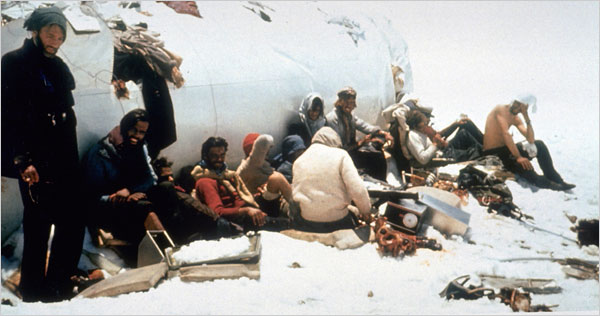|
Reviews of Recent Independent, Foreign, & Documentary Films in Theaters and DVD/Home Video

STRANDED: I’VE COME FROM A PLANE THAT CRASHED ON THE MOUNTAINS Almost everyone is familiar with the story of the Uruguayan rugby team whose plane crashed in the Andes in 1972. Sixteen of the 45 passengers survived for 72 days in seemingly impossible conditions. Famously, they ate human flesh of the dead—it was their only means to survive. Their story was most notoriously documented in British writer Piers Paul Read’s Alive: The Story of the Andes Survivors (1974), and has also been the subject of several movies, documentaries, and a memoir by survivor Nando Parrado. With Stranded: I've Come From a Plane That Crashed on the Mountains, these brave survivors and their incredible, death-defying story finally receive the treatment that they deserve. Uruguayan-born, French-based director Gonzalo Arijon is a childhood friend of some of the survivors, and he gives voice to their story as an insider, focusing on their complex range of human experiences rather than resorting to the pulpy sensationalism of previous versions of their story. With comprehensive interviews, dramatic reenactments, and extensive footage of the stark, snowy Andes, the film covers the intense life-and-death details that Alive fans crave. But Stranded brings so much more. We get a sense of who these men really are—the depth of their friendship, and, most interestingly, their identity as Uruguayans, which is part of what makes their story so unique. To survive, they stuck together and supported each other, which not every group of crash victims would’ve done. The survivor’s accounts of their near-death experiences are some of the most beautiful parts of the film. They each have different ways of understanding the spiritual element of their brush with death. It’s fascinating to hear the first-person narratives of survivors Nando Parrado and Roberto Canessa, who, at ages 20 and 19 respectively, walked for almost 45 miles over the mountains, crossing 13,000-foot summits, with only rugby boots for equipment—but it’s even more compelling to hear how their lives are effected by the experience 35 years later. Stranded has the stark, eerie beauty of Kevin Macdonald’s Touching the Void (2003). Cinematographer, César Charlone, who shot City of God and The Constant Gardener, also has a personal connection to this story—his father was the Brazilian ambassador to Uruguay, and he was best friends with Nando Parrado as a teen. In fact, he just missed being on Flight 571.
These survivors had an experience that pushed every
boundary of human society. Their story is sensational on its own,
without filmmakers trying to amp up the adrenaline. Stranded
moves beyond sensationalism, conveying the depth of emotion,
metaphysical breakthroughs, and refigured understanding of life itself
that these men underwent.
Elizabeth Bachner
|

